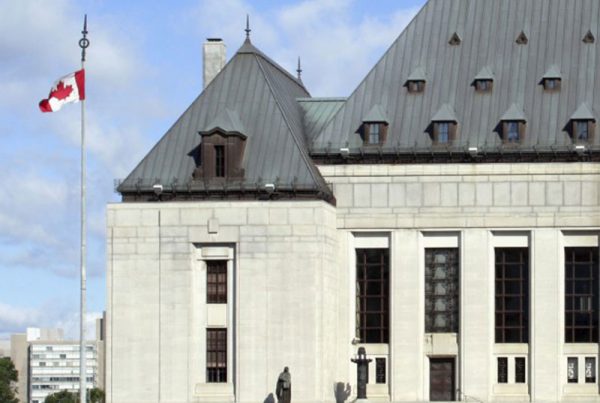April 29, 2020 – UPDATE
A flawed and risky emergency management order was changed after CCLA’s letter of April 8, 2020 resulting in a new and improved order released last Monday, 24 April 2020. Gone are warrantless search powers and a blanket prohibition on religious activities. Several items are clarified and greater proportionality added. All in all, good news for civil liberties in Nunavut!
April 8, 2020
Hon. Jeannie Hakongak Ehaloak,
Minister of Justice and Attorney General
Government of Nunavut
PO Box 1000 Station 200
Iqualuit, Nunavut X0A0H0
VIA EMAIL
Re: March 20, 2020 Order Restricting Mass Gatherings
Dear Minister,
The Canadian Civil Liberties Association is writing you about the March 20, 2020 public health Order Restricting Mass Gatherings, a copy of which we attach. We have grave concerns that the order is unconstitutional. While we appreciate that public health management in Nunavut is deserving of deference to local expertise, the constitution sets a higher standard for necessity, clarity and proportionality for orders than is found in this one signed by Dr. Patterson. This order limits peoples’ constitutional rights and freedoms in a way that is overly broad, at times irrational, and disproportionate.
For example, it would appear to prohibit a prayer circle of two people. It specifically and purposefully limits freedom of religion without any exception. It is one thing to limit large church or spiritual get-togethers because they are large gatherings of people. It is another to limit them because they’re religious. This order does the latter. It is unconstitutional on its face, albeit could be amended so as to achieve the purpose to which I can guess but cannot see in the order itself.
The blanket prohibition against “all public gatherings,” without defining either “public” (versus private?) or “gatherings” (social or recreational?) or both together is ambiguous and disproportionate. It seems to prohibit a hospital from existing. Is a public gathering two people, or 20, 50, 100? Again, this provision could easily be amended to clarify and specify what’s being targeted here by the Chief Public Health Officer, for as of today this order may be void for vagueness.
More concerning are the orders permitting warrantless entry into premises. Firstly, the underlying statute authorizing this order is not so broad as to permit a territorial public health officer to authorize warrantless entry by peace officers. While we may disagree on this point, it is worth a second look, in our respectful submission.
Secondly, the conditions do not withstand even deferential Charter scrutiny. As you know, the legal test permitting warrantless entry is “exigent circumstances’ — such as an officer seeing a gun to the head of someone through the front window. The wording of sections 3 and 4 of the March 20 public health order are not analogous to a gun to the head.
The language employed by Dr. Patterson’s order on this front is simply too ambiguous, perhaps even incomprehensible: “the dwelling, or something in or only accessible through the dwelling, is a serious and immediate risk to public health.” A dwelling itself cannot be a serious risk to public health, unless there is evidence of contamination and evidence that the public is going to enter that dwelling. There is no way for a peace officer to know whether a property or its contents are contaminated, without having the relevant testing equipment on site and transmitting its findings to the peace officer. Further, the circumstances of the general public entering a contaminated dwelling are absurd or at least obscure.
Moreover, the phrase “serious and immediate risk to public health” is too broad, including everything from flu contamination to opiate manufacturing. Exigent circumstances involves imminent danger to people, not property. It is unclear to us whether a jurisdiction with such a low to non-existent infection rate of COVID19 could ever justify warrantless entry because of a speculative risk to such an amorphous concept as ‘risk to public health.’
Lastly, the “consent” condition of warrantless entry is so broadly worded as to permit a landlord to authorize warrantless entry by police into a tenant’s apartment, which on its face is contrary to existing constitutional law.
Thank you for considering the foregoing. We would appreciate a response and would be happy to be consulted should you see fit, although obviously your Ministry has more constitutional experts than our small NGO could offer.
Yours truly, pray
Michael Bryant
Executive Director & General Counsel
Canadian Civil Liberties Association
About the Canadian Civil Liberties Association
The CCLA is an independent, non-profit organization with supporters from across the country. Founded in 1964, the CCLA is a national human rights organization committed to defending the rights, dignity, safety, and freedoms of all people in Canada.
For the Media
For further comments, please contact us at media@ccla.org.





